Put together by an oral history project, a two-day exhibition will feature the stories of India's first citizens - childhood memories to socio-cultural ideologies
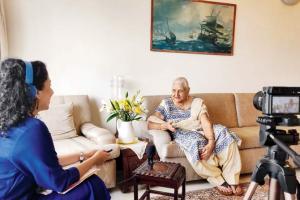
Harlynn Homan interviews Mrs Kamla Bhushan, who talks about her memories of growing up in Kashmir. Pic courtesy/ The Citizens' Archive of India
In the introduction to Jawaharlal Nehru's Discovery of India, academic Sunil Khilnani compares the time the politician spent in his Ahmednagar jail cell to a line from TS Eliot's Little Gidding — the kind of existence, at the "point of intersection of the timeless with time." An exhibition that opens next week at Gallery Chemould plays on the same intersection with stories from India's first citizens. Titled Life As They Knew It, the two-day showcase put together by The Citizen's Archive of India (CAI), an oral and material memory project, will take the viewer through the ordinary lives of citizens who have seen this country before and after Independence.'
ADVERTISEMENT
With a curatorial team of three people and over 350 hours of information via audio-video recordings from citizens across the subcontinent, the planning for the exhibition began three months ago. The show stems from two of CAI's undertakings — The 1947 Project and Dilli Ki Khirki (centred around the village in South Delhi). A relatively new archive, CAI wanted to make themselves known since oral history is a niche field and not many people know about it. "Even when we interview people, they ask us if we're making a movie or writing a book. So, we put together this exhibition to explain what oral history is. We want to preserve the link between generations. We now have the technology and the ability, and I think it's important," archive director Malvika Bhatia says.
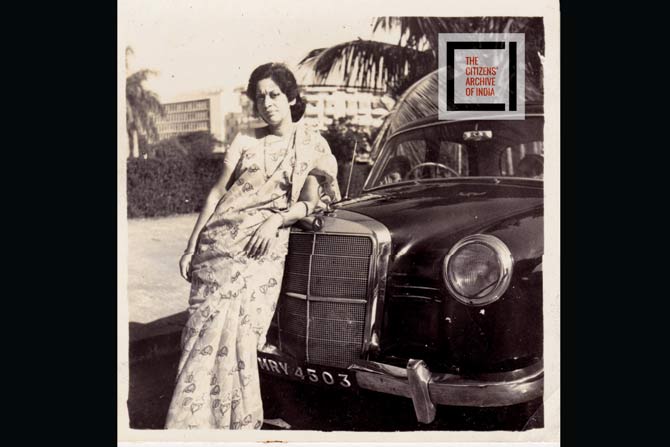 "I bought this Mercedes second-hand from a foreigner who was moving away, so I got it really cheap. I used to drive it to work. The policeman at the corner would salute me and stop traffic to let me through. After I sold the car, he never even recognised me!" – Suman Desai, Bombay, 1960s
"I bought this Mercedes second-hand from a foreigner who was moving away, so I got it really cheap. I used to drive it to work. The policeman at the corner would salute me and stop traffic to let me through. After I sold the car, he never even recognised me!" – Suman Desai, Bombay, 1960s
The importance of oral accounts, the 29-year-old emphasises, is the unique local perspective it brings — for instance, some interviewees from the Khirki Project talk about getting the electric bulb for the first time; information you can only get by talking to people. "Studying political history doesn't give you this perspective. You learn about who came to power and how but not about how people really lived. It doesn't tell you about the ordinary person," Bhatia adds.
Having grown up in a joint family, the Prabhadevi resident Bhatia has always been attached to stories. But this process of interviews changed her world view. "It taught me to be aware that everyone has a different point of view. I may have disagreed with people but they've given such sound reasoning for their opinions — for issues as light-hearted as love versus arranged marriage or something as serious as religious tension," she shares.
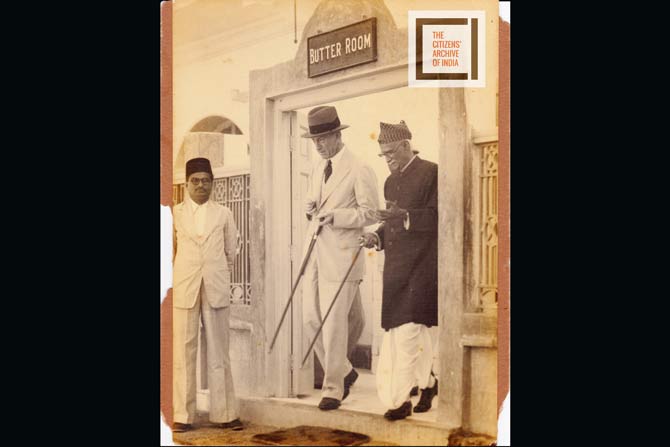 Doongursee Shyamji Joshi with the Governor of Sind, as they inspect the Karachi Panjrapole. Karachi, undated
Doongursee Shyamji Joshi with the Governor of Sind, as they inspect the Karachi Panjrapole. Karachi, undated
Bhatia narrates a meeting with a woman, who was married off as a teenager in a Rajasthani village that particularly impacted her. Initially nervous to give an interview, she shared a story that highlighted the social structure. "Her husband worked in the city and she would be living at home with her mother-in-law, aunt-in-law and sister-in-law. They didn't have toilets at home and had to head into the fields. Since everything happened according to the order of age, she could only use the toilet after the rest," Bhatia informs. From CIA's interviews, the archivist also states that a lot of people mentioned that they never considered religious differences. "There was no out-and-out hatred. People who grew up in Bombay especially, we find, tend to tell us about the mix of communities," she adds.
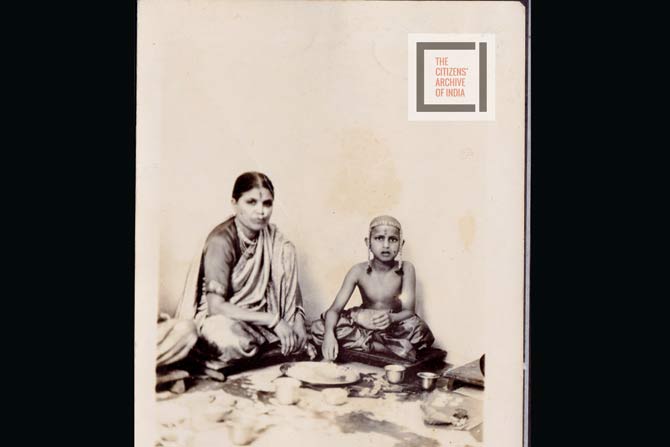
"This picture of my mother and I was taken at my thread ceremony. I was growing up. This ritual signifies the last time a son eats from his mother’s plate." – Col. Deodutta Rajwade, Nagpur, 1930s
The exhibition comprises audio, video and photographs. And although it is not segregated into chronology, there will be sections on each stage of life: early years, marriages, and careers. Looking back, Bhatia that like people belonging to the generation around the time of India's Independence were unafraid to voice their opinion. "We always think that our generation [millennials] have witnessed a drastic change with technology coming in. But their generation literally saw the nation being born; that's a huge change."
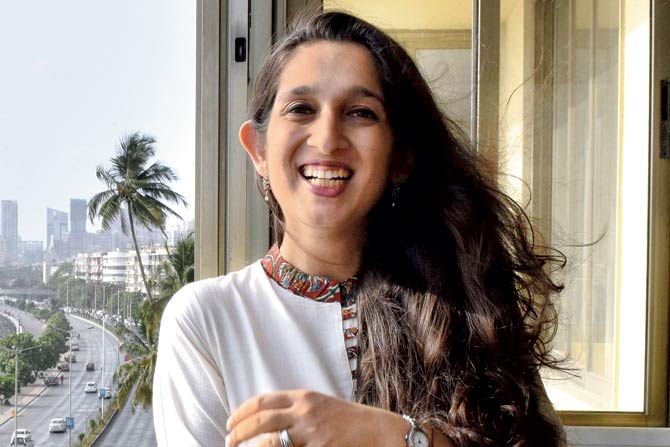
Malvika Bhatia
FREE
On November 14 and 15, 11 am to 9 pm
On Chemould Prescott Road, Queens Mansion, Fort.
Call 22000211
Catch up on all the latest Mumbai news, crime news, current affairs, and also a complete guide on Mumbai from food to things to do and events across the city here. Also download the new mid-day Android and iOS apps to get latest updates
 Subscribe today by clicking the link and stay updated with the latest news!" Click here!
Subscribe today by clicking the link and stay updated with the latest news!" Click here!







